
Liver Research
Scope & Guideline
Fostering innovation in liver disease research.
Introduction
Aims and Scopes
- Liver Disease Mechanisms and Pathogenesis:
Research articles explore the underlying mechanisms of various liver diseases, including hepatitis, non-alcoholic fatty liver disease (NAFLD), and hepatocellular carcinoma, highlighting molecular pathways, genetic factors, and environmental influences. - Clinical Management and Therapeutic Approaches:
The journal emphasizes clinical research on the diagnosis, treatment, and management strategies for liver diseases, incorporating studies on drug efficacy, surgical interventions, and innovative therapies such as immunotherapy and gene therapy. - Translational Research:
A strong focus on translating bench research into clinical applications, with studies examining the efficacy of novel biomarkers, therapeutic targets, and treatment protocols for liver diseases. - Interdisciplinary Approaches:
The journal promotes interdisciplinary research, incorporating insights from immunology, microbiology, and metabolism to understand liver diseases and their systemic impacts. - Emerging Technologies in Liver Research:
The journal encourages the use of advanced technologies such as machine learning, molecular imaging, and organoid models to enhance research accuracy and therapeutic development.
Trending and Emerging
- Role of Artificial Intelligence and Machine Learning:
There is an increasing trend towards incorporating AI and machine learning in liver research, particularly for early detection and diagnosis of liver diseases, indicating a shift towards data-driven approaches. - Impact of Gut-Liver Axis:
Research on the gut-liver axis has gained prominence, focusing on how gut microbiota and metabolites influence liver health, suggesting that understanding this connection is critical for developing holistic treatment strategies. - Immune Response in Liver Diseases:
Studies investigating the role of immune cells and inflammatory responses in liver diseases are becoming more prevalent, highlighting the importance of immunological factors in disease progression and therapy. - Focus on Non-Alcoholic Fatty Liver Disease (NAFLD):
NAFLD remains a significant area of interest, with research expanding to include metabolic dysfunction, genetic predispositions, and novel therapeutic targets, reflecting its rising prevalence globally. - Personalized Medicine Approaches:
Emerging themes include the development of personalized medicine strategies based on genetic and molecular profiling to tailor treatments for individual patients, enhancing the efficacy of interventions.
Declining or Waning
- Traditional Biomarker Studies:
There has been a noticeable decline in studies centered around traditional liver biomarkers, as newer methodologies and technologies, such as machine learning and genomics, are being favored for more precise diagnostics. - Single-Focus Disease Studies:
Research that solely focuses on individual liver diseases, without considering the broader interactions with systemic conditions or comorbidities, appears to be waning in favor of more integrated approaches that examine multifactorial influences. - Basic Science without Clinical Relevance:
Studies that focus exclusively on basic science with minimal clinical implications are less frequently published, as there is a growing emphasis on research that bridges laboratory findings with clinical applications. - Case Reports and Anecdotal Evidence:
The publication of case reports has decreased, likely due to a shift towards larger cohort studies and systematic reviews that provide more generalizable insights into liver disease management.
Similar Journals
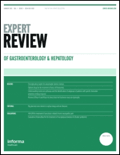
Expert Review of Gastroenterology & Hepatology
Your Gateway to Cutting-Edge Insights in GastroenterologyExpert Review of Gastroenterology & Hepatology is a premier journal published by Taylor & Francis Ltd that aims to bridge the gap between clinical practice and research in the fields of gastroenterology and hepatology. Established in 2007, this journal has rapidly gained recognition, boasting a Q1 ranking in Gastroenterology and a Q2 ranking in Hepatology for 2023, while achieving impressive Scopus rankings of 31st and 25th respectively in these disciplines, placing it within the top 81st and 70th percentiles. The journal’s objective is to provide a comprehensive platform for the latest developments, innovative treatments, and critical reviews, catering to researchers, healthcare professionals, and students alike. Located in the United Kingdom, the journal does not operate under an open access model but ensures that its content is accessible to a global audience through institutional subscriptions. By consistently publishing high-impact reviews and articles, Expert Review of Gastroenterology & Hepatology solidifies its role as a vital resource in advancing knowledge and clinical practice within these challenging and evolving fields.

Hepatology International
Exploring the frontiers of liver disease understanding.Hepatology International is a premier academic journal dedicated to advancing the field of liver research and hepatology. Published by SPRINGER, this journal boasts a prestigious Q1 ranking in Hepatology as of 2023, underscoring its commitment to high-quality research dissemination. The journal’s scope encompasses a wide range of topics related to liver disease, including clinical, translational, and basic science studies. With its impact factor reflecting its relevance and influence in the field, Hepatology International serves as an essential resource for researchers, clinicians, and students aiming to keep abreast of the latest developments and breakthroughs. Though traditionally a subscription-based journal, it offers a vast array of insightful articles that contribute significantly to our understanding of hepatological conditions. The journal continues its trajectory of growth since its inception in 2008, anticipating a convergence of knowledge and innovation through to 2024. Located in the heart of New York City, this journal not only represents a crucial platform for global hepatology research but also fosters a collaborative community of experts dedicated to improving liver health worldwide.
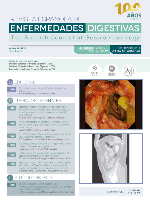
REVISTA ESPANOLA DE ENFERMEDADES DIGESTIVAS
Fostering collaboration in the field of digestive health.REVISTA ESPANOLA DE ENFERMEDADES DIGESTIVAS, a pivotal Open Access journal published by ARAN EDICIONES, S A, has been at the forefront of advancing the field of gastroenterology since its inception in 1990. With a robust commitment to disseminating high-quality research, the journal provides a platform for researchers, clinicians, and students to share innovative findings and insights concerning digestive diseases. The journal is characterized by its Q3 ranking in both Gastroenterology and Miscellaneous Medicine categories, indicative of its significant contributions to these fields, and is positioned within the 36th percentile of Scopus rankings for medicine related to gastroenterology. Based in Spain, REVISTA ESPANOLA DE ENFERMEDADES DIGESTIVAS has embraced the Open Access model since 2004, ensuring that its articles are readily available to a global audience without financial barriers. The journal not only supports academic discourse but also plays a crucial role in improving clinical practices and health outcomes related to digestive health.
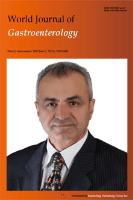
WORLD JOURNAL OF GASTROENTEROLOGY
Leading the way in gastrointestinal research excellence.WORLD JOURNAL OF GASTROENTEROLOGY, published by BAISHIDENG PUBLISHING GROUP INC, stands at the forefront of gastrointestinal research, providing a critical platform for the dissemination of high-quality studies in the field. With an impressive impact factor reflected in its Q1 rankings in both Gastroenterology and Miscellaneous Medicine, this journal is recognized for its rigorous peer-review process and commitment to advancing knowledge and practices related to digestive health. Covering comprehensive scopes from clinical advancements to innovative therapies, the journal serves an essential role for researchers, clinicians, and students, enabling them to stay updated on the latest developments and findings from 1998 through 2024. The open access model facilitates broader accessibility, ensuring that groundbreaking research reaches a global audience. The journal's ranking within the top 15% of Scopus demonstrates its significant contribution to the academic community, making it a valuable resource for advancing the science of gastroenterology.

Canadian Journal of Gastroenterology and Hepatology
Unveiling the Latest in Gastrointestinal and Liver ScienceCanadian Journal of Gastroenterology and Hepatology, published by HINDAWI LTD, serves as a vital resource in the fields of gastroenterology and hepatology. Since its inception in 1987, this open-access journal has made significant contributions to advancing research and clinical practice through its comprehensive coverage of topics ranging from liver diseases to gastrointestinal disorders. With an impressive Q2 ranking in Gastroenterology and a Q3 ranking in Hepatology as of 2023, the journal has established itself as an influential platform for researchers and healthcare professionals seeking to disseminate and acquire knowledge. The journal is based in Egypt, with its operational headquarters located in London, England. Notably, it holds a respectable standing in Scopus rankings, placed at Rank #64 in Gastroenterology and Rank #34 in Hepatology, reflecting its impact and relevance in the medical community. With a commitment to quality and accessibility, the Canadian Journal of Gastroenterology and Hepatology continues to foster innovation and collaboration among its readers.

World Journal of Hepatology
Innovating hepatology research for tomorrow's treatments.World Journal of Hepatology is a premier academic journal dedicated to advancing the field of hepatology. Published by BAISHIDENG PUBLISHING GROUP INC, this journal serves as a crucial platform for disseminating innovative research findings and critical reviews from around the globe. With its ISSN 1948-5182 and E-ISSN 1948-5182, the journal has established a notable presence since its inception in 2009, covering a wide range of topics relevant to liver diseases, including but not limited to hepatitis, liver cancer, and metabolic liver disorders. Currently ranked 41/82 in the field of hepatology by Scopus, representing the 50th percentile, it has achieved a Q3 quartile ranking in the 2023 category, underscoring its growing influence in the medical community. With a commitment to open access for its readership, the World Journal of Hepatology enriches the global discourse on liver health and disease management, making it an essential resource for researchers, clinicians, and students alike.

Frontline Gastroenterology
Pioneering Research for Liver and Gut HealthFrontline Gastroenterology is a leading academic journal published by the BMJ Publishing Group that plays a vital role in advancing the field of gastroenterology and hepatology. Established in 2013, this prestigious journal has established itself as a significant resource for researchers, healthcare professionals, and students alike, maintaining a commendable impact factor and consistently achieving a Q2 ranking in both gastroenterology and hepatology categories as of 2023. With its focus on disseminating high-quality, peer-reviewed research, Frontline Gastroenterology covers a wide scope of topics pertinent to the understanding, diagnosis, and treatment of gastrointestinal and liver diseases. Although it does not offer Open Access options, its content is accessible through various institutional and personal subscriptions, ensuring that critical findings reach an international audience. As the journal continues to converge into the future, it remains dedicated to fostering innovation and dialogue in gastroenterological sciences.

Translational Gastroenterology and Hepatology
Bridging Discovery and Care in Gastroenterology.Translational Gastroenterology and Hepatology, published by AME Publishing Company, stands as a pivotal platform for advancing the understanding and treatment of gastrointestinal and liver diseases. With its focus on translational research, this journal aims to bridge the gap between laboratory discoveries and clinical applications, thus fostering improvements in patient care. Although specific metrics like H-Index and Scopus ranks are currently unavailable, the journal is committed to maintaining high standards of scholarly communication and excellence. As an open-access publication, it ensures that valuable findings are readily accessible to a global audience, promoting collaboration and innovation among researchers, clinicians, and healthcare professionals invested in gastroenterology and hepatology. The journal's dedication to disseminating groundbreaking research makes it an essential resource for those seeking to stay at the forefront of these ever-evolving fields.
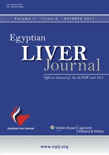
Egyptian Liver Journal
Innovative findings shaping the future of liver care.The Egyptian Liver Journal, ISSN 2090-6218, is a vital resource for the hepatology community, published by SPRINGEROPEN. Since its establishment in 2012, this journal has served as a platform for disseminating significant findings in liver research, with an emphasis on enhancing understanding and treatment of liver diseases. Recognized with a Q3 ranking in Hepatology for 2023, the Egyptian Liver Journal aims to bridge the gap between research and clinical practice through its commitment to open access, fostering a global exchange of knowledge without barriers since 2019. With a focus on innovative studies, reviews, and clinical guidelines, the journal appeals to a diverse audience of researchers, clinicians, and students dedicated to advancing liver health. Situated in the heart of the United States, this publication addresses the pressing issues within the field and encourages submissions that address the future of liver care and treatment.
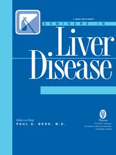
SEMINARS IN LIVER DISEASE
Elevating the discourse in liver disease management.SEMINARS IN LIVER DISEASE is a premier journal dedicated to advancing the field of hepatology, published by THIEME MEDICAL PUBL INC. Established in 1981, it has become a respected resource within the academic community, providing high-quality peer-reviewed articles that cover a broad range of topics related to liver diseases. With an impressive impact factor and recognized as a Q1 journal in the hepatology category, it ranks 17th out of 82 journals in the field, placing it in the top 21% of its category according to Scopus rankings. Although it does not offer open access, the journal’s rigorous standards and extensive network ensure that it reaches a wide audience of clinicians, researchers, and students, fostering knowledge and innovation in liver disease management. The journal's objectives focus on disseminating critical insights and promoting informed discussions that can pave the way for future research and clinical advancements in hepatology.